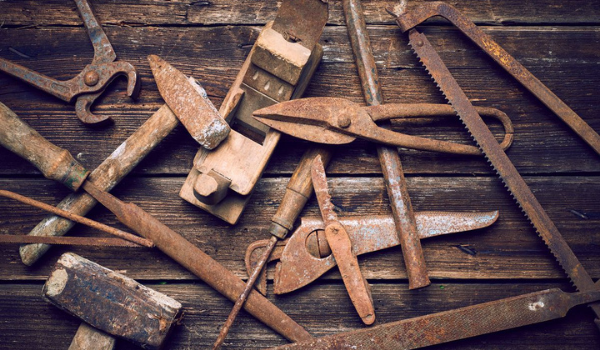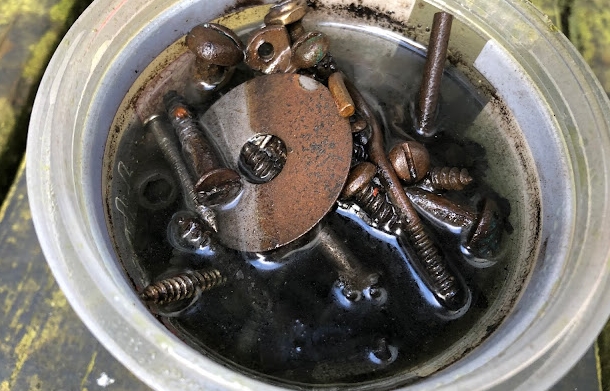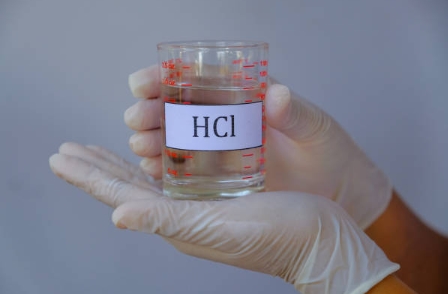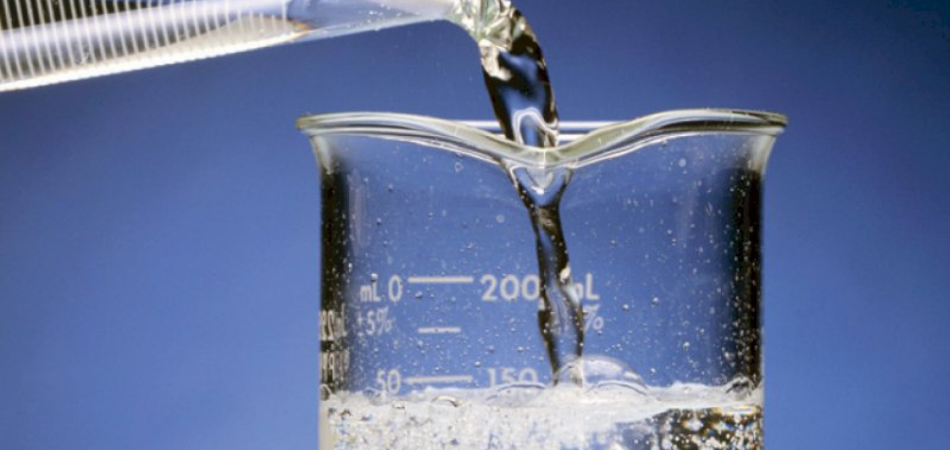Rust can be quite damaging to metals, especially alloy metals and other Jewelry. As a result, people always seek ways to prevent their materials. However, for alloyed metals and fashion Jewelry, rust seems to be an inevitable phenomenon that will eventually attack and affect them. So, does hydrochloric acid remove rust?
Yes, Hydrochloric acid can remove rust from steel. However, dissolving the rust from the steel and neutralizing hydrochloric acid with a base, such as sodium hydroxide, produce byproducts that may pollute the environment or harm people.
Hydrochloric acid removes rust by converting an inner layer of iron oxide or hydrated iron oxide, commonly called rust, and turning it into a water-soluble chloride. Rust removal works best when the solution is slightly acidic, which can be accomplished by adding hydrochloric acid.
Therefore, you must use your safety gear, especially the nose mask, whenever you try to do this. Also, you should do the rust removal in an open space where it is far from anyone.
Below, you will find out more about whether hydrochloric acid can remove rust. I will also provide you with guidelines on applying or using this substance to effectively remove rust from your metal or Jewelry.
Contents
Ways of Removing Rust from Materials
Rust on your metal could be removed or treated in different ways, depending on the level of effect desired, the available budget, the time available for treating the rust and the strength.

Rust could be removed by the use of sandpaper or other hard pads to scrub the surface of the metal or rusted material. Secondly, rust can be removed through various chemical processes. While the first one involves more strength, the second relies heavily on the ability of the activated chemical reaction to remove the rust.
When it comes to the chemical means of removing rust, some apply vinegar, as well as many other substances which soften the rust before removal. Each of these chemicals have their different ways of working on the rust, and this determines how effective they are.
How Hydrochloric Acid Works on Rust?
Hydrochloric acid is also called muriatic acid. It has come to be one of the best chemicals for treating and removing rust both at home and in large industries like electroplating Mills and steel factories.
Hydrochloric acid is naturally in gaseous state. It is usually diluted in water to reduce its acidity or concentration as it is highly capable of damage and destruction.

Two sets of chemical reactions happen when rust is dissolved in hydrochloric acid. The first is that which attacks and dissolves the rust. This reaction is illustrated below:
6 HCl + Fe2O3 → 2 FeCl3 + 3 H2O
Of course, hydrochloric acid effectively dissolves rust of any kind once the right mixture is attained. In essence, hydrochloric acid removes rust from.your metal and can return it to its natural state if well handled.
After the rusted metal has been soaked or poured the acid and allowed some time to dissolve the rust, the metal is then cleaned up with a pad to entirely clean up the rust.
Basic Guides in Using Hydrochloric Acid to Remove Rust
As highlighted above, hydrochloric acid can effectively treat or remove rust. However, it can be very harmful if not handled with care. It can in fact achieve the opposite of the result for which it was intended in the first place.

After the first reaction which removes rust, a second reaction happens if the rusted metal isn’t quickly removed and taken care of. The second reaction happens when the rust is dissolved and the real surface of the metal becomes exposed to the attack of the highly concentrated acid. It automatically begins to pit the metal and corrode it. The second chemical reaction is represented as:
Fe + 2 HCl → FeCl2 + H2
This second reaction is just the reason why many go for softer and more harmful chemicals like sulphuric acid and phosphoric acid which are milder. Apart from pitting metals, hydrochloric acid can also burn or cause serious damage to the skin.
Therefore, to use hydrochloric acid in removing rust demands that some safety precautions and professional rules are observed. These guides include:
- Ensure your hands are first and foremost gloved in such a way that the acid will not touch your skin. You should equally wear your glasses and any other protectives that will keep you from being touched by the acid.
- Do not pour water into acid, instead pour acid into water. This helps avoid dangerous reactions that might harm you.
- Use a scrub brush to evenly get the acid on the surface of the rust and to equally scrub off the rust.
- Depending on the ratio of water to hydrochloric acid, you have to be alert to either remove the rusted metal from where it is submerged in the acid and clean it up as fast. Failure to clean the acid from the metal would result in it damaging the metal instead.
- It is always advisable to ensure that the value of the chemical is far lesser than that of water. If peradventure you feel that the acid is high and overpowering the water, you must pull out the iron or metal as soon as possible to avoid the metal from being damaged.
- If you are not quite comfortable or able to appropriately manage hydrochloric acid, it is advisable to go for milder acids which pose less danger in terms of reactions.
Conclusion
In this article, I have tried to answer your question as to what hydrochloric acid does to rust and how it can be safely used to achieve that aim.
Hydrochloric acid removes rust from your metal or Jewelry and can return your rusted material to its natural state. All you need to do is to know the amount of mixture needed and the ratio of the acid to water so as to pose less harm both to the metal and to your health. With your hydrochloric acid and the right knowledge of how to apply it, you need not worry about rust on your metal and the damage thereof.
You may, however, like to ngo for other chemicals or acids such as phosphoric acid or vinegar if you know that you won’t be able to handle the concentration and danger of hydrochloric acid.


